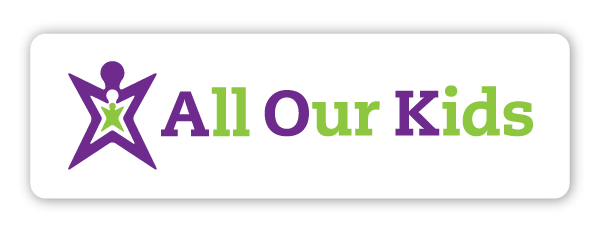Childcare & Respite Options Through DCF
As a foster parent, there are times when we need someone else to watch our children. Whether to run child-free errands, for a night out, or when you just need a break. Accessing childcare for a child in foster care isn't as straightforward as it is for children in traditional families. Here are four types of childcare that children in foster care can access:

Formal Daycare
There are two mechanisms to access daycare for a child in foster care. Through a partnership with the MA Department of Early Education and Care (EEC), DCF has access to "daycare vouchers," through a contracted agency (in our region it's Seven Hills). When a child is assigned a voucher, they can attend any daycare setting that accepts a voucher (and has an available slot). Vouchers can be accepted by both center-based and family-based licensed childcare providers. Typically, you'd work with your Family Resource Worker to access a voucher, but you can independently seek out a provider in your area who accepts vouchers and has an opening in their program. These days, finding a provider with availability has proven to be more difficult than accessing the voucher!
DCF also has "contracted slots" with some childcare providers. These are slots in the provider's childcare that can only be used by children in DCF custody and with that provider. Unlike the voucher, the contracted slot doesn't follow the child. Only your child's DCF worker can access these contracted slots. You can always check out the Resource & Support Hub Partner, DCF Childcare Specialist, for more information.
Occasional Babysitting/Childcare
To hire a babysitter for occasional childcare, that person must be cleared and approved by DCF. They must provide personal information to DCF and be willing to undergo a thorough background check (Criminal Offender Record Information, or "CORI"). Additionally, DCF will typically only allow the childcare to occur in your home, rather than at the babysitter's home. There can be some exceptions to this, but it will vary from office to office and worker to worker. Typically, foster parents identify their own babysitters and provide their contact information for DCF to approve. Importantly, if a potential childcare provider has lived in a different state recently, they might have to supplement the CORI with their own background report from the other state.
MSPCC KidsNet program provides funding for 10 hrs of childcare each month for each foster family. The childcare can be for any child in your home, not only your foster children. KidsNet will pay your childcare provider directly. Because the rate of pay is quite low, many foster parents will supplement this payment for their babysitter. Any childcare beyond 10 hrs/month will not be subsidized by KidsNet.
Respite
When a foster child spends at least one night in the care of a different foster parent, this is called "respite." Respite can be used for a variety of reasons, most commonly just needing a break from the demands of caring for a high-needs child. Some foster parents will need respite when dealing with a family emergency or time-sensitive urgent medical situation. Although some families do it, we don't recommend requesting respite for your foster child to take the rest of your family on vacation. There are exceptions when this is a reasonable course of action, but your foster children are part of your family and deserve to be included in all enrichment and excursions in which your family engages.

Some foster parents will find a respite provider (i.e., another foster family) they know and trust to provide respite for their child. Others will request that their child's social worker identify the respite provider. Work with your DCF team to determine the right way to identify a respite provider for your situation. Ideally, your child will be able to stay with someone they already know and are comfortable with in order to minimize any additional trauma.
MSPCC KidsNet program provides funding to pay the respite provider for a maximum of 10 days annually. Through DCF, the respite provider receives payment equal to the daily rate of support the child receives. Importantly, this is in addition to the stipend the foster parent receives, so there should be no change to your payment.
Informal Childcare Program
In early 2023, DCF unveiled the "Foster Parents as Informal Childcare Providers" program. Although there was a great deal of confusion initially about how this would impact foster parents seeking their own informal childcare, there really is no impact to foster parents ability to find a babysitter for their child. The program is meant to address the concerns about children spending time during the day in DCF offices due to a lack of stable placement or formal childcare. Through this program, enrolled foster parents can be available to provide childcare during working hours to prevent children having to sit in DCF offices while their social workers seek more appropriate placement for them. If you're interested in being an informal childcare provider of this sort, talk to your family resource worker.

